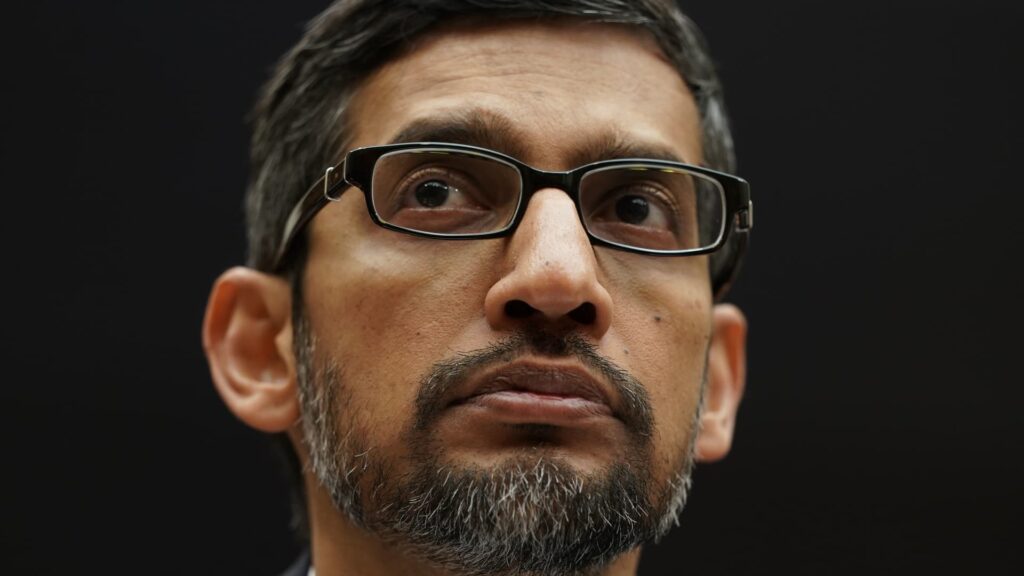Alphabet, the parent company of Google and YouTube, is set to report first-quarter earnings after the bell Thursday.
Here’s what analysts are expecting.
Revenue: $89.12 billion, according to LSEGEarnings per share: $2.01, according to LSEGYouTube advertising revenue: $8.97 billion, according to StreetAccountGoogle Cloud revenue: $12.27 billion, according to StreetAccountTraffic acquisition costs (TAC): $13.66 billion, according to StreetAccount
Google finds itself at the center of an artificial intelligence arms race where its position may be threatened pending mounting regulation and competition from generative AI companies, including OpenAI and Anthropic. The company is also among those bracing for the potential impact from President Donald Trump’s tariffs, which could result in a pullback in advertiser spending due to tighter budgets.
Alphabet shares have dropped more than 17% in 2025 so far.
Wall Street is expecting Alphabet to report 10% year-over-year revenue growth for the first quarter, which included a slew of AI announcements, its largest-ever acquisition, cost cuts and regulatory hurdles.
In March, Google released Gemini 2.5, its “most capable” artificial intelligence model suite yet, and Gemma 3, the company’s latest open model. The timing of Gemini 2.5 and Gemma 3 comes after DeepSeek in January released its R1 model, which caused a rift in Silicon Valley after the Chinese startup claimed its AI model was trained at a fraction of the cost of other leading models.
Google AI chief Demis Hassabis told employees at an all-hands meeting in February that he was not worried about DeepSeek and that Google has superior AI technology.
“We’re very calm and confident in our strategy, and we have all the ingredients to maintain our leadership into this year,” Hassabis said, calming concerns from investors and employees alike. He added, however, he thinks the Chinese company is still “something to be taken seriously.”
Google this quarter also announced new personalization features for Gemini, allowing the chatbot to reference users’ search histories, and users can also connect Gemini to other Google apps, including Calendar, Notes, Tasks and Photos.
During the quarter, Nvidia CEO Jensen Huang announced it would be partnering with Google’s Gemini products, giving the company high praise.
“No company is better at every single layer of computing than Google and Google Cloud,” Huang said.
Alphabet also had a number of announcements in autonomous driving.
In March, Waymo began offering robotaxi rides in Austin, Texas, through the Uber app and opened up a waitlist in Atlanta. Those markets are just two of several more expected expansions in the U.S. this year.
Alphabet also made its largest acquisition ever in March when it agreed to buy Wiz for $32 billion in cash, almost $10 billion more than it offered for the startup in 2024, and said it expects the deal to close next year, subject to regulatory approvals. With the acquisition, Google will seek to bolster its cloud division’s security offerings. Google is behind Amazon and Microsoft in cloud market share, which may help the company’s argument to obtain regulatory approval.
Google this quarter also faced a slew of regulatory and legal challenges.
Last week, a federal judge ruled that Google held illegal monopolies in online advertising markets due to its position between ad buyers and sellers. The ruling represents a second major antitrust blow for Google. Last August, a judge determined the company has held a monopoly in its core market of internet search.
In April, the company reached a settlement with its employee union, where it agreed to reverse a policy forbidding employees from discussing antitrust litigation. The settlement, which marked a major victory for Google staffers, came ahead of Google’s remedy trial, which will determine the consequences of the search monopoly ruling over the next few weeks.
Education tech company Chegg in February filed a lawsuit against Google. Chegg claimed that Google’s “AI summaries” feature in search have hurt the online education company’s traffic and revenue. Similarly, Reddit in February claimed that Google’s search algorithm caused some “volatility” with user growth in the fourth quarter, but the company’s search-related traffic has since recovered, CEO Steve Huffman said.
WATCH: DOJ targets Google’s AI ambitions in high-stakes antitrust trial


